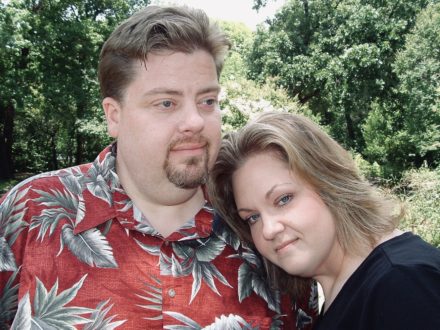Five Years
At 8:32 a.m., on October 11, 2015, a slow Sunday morning at our home in Tennessee, my iPhone rang. The screen read LIBBY CHINN, our daughter-in-law.

When I answered, I only heard an anguished moan. No discernable words or syllables. But I knew. Just as crowd sounds tell PGA tour golfers where their ball lies on the green, I knew Libby’s husband, our son Paul, was dead. Nothing else would have produced that sound.
“We’re on the way.”
As we drove the two miles, I called our closest friends, Glen and Roberta Roachelle. I do not remember any other words spoken during the short drive. Something in the simple severity of the moment made words inoperable and inappropriate.
When we rounded the corner to Paul and Libby’s home, the police cars and an EMT vehicle confirmed what we knew. As we walked across the yard in the cool autumn air, a Sheriff’s deputy walked out the front door.
I said, “We’re Paul’s parents. Is he dead?”
“Yes.”
The impeccable word. I needed clarity; no agency-speak, no “I regret to inform you…” With that word, solid ground formed under my feet.
We went on into the house to our sweet and broken Libby. Soon, David Roachelle, a local law enforcement officer and one of Paul’s oldest and closest friends, arrived. Moments later, David’s parents, Glen and Roberta, walked in. They brought strength and love like the tide.
I stepped outside to call our other two children, Eddie in Atlanta, and Amy, who lived nearby. Then I called my brothers; Vernon and Carl loved Paul like their own kids. In each call, I knew where the ball landed.
Message from Home
But I remember the day more for what happened a few hours later.
After lunch, I went to my office to plan a funeral. As I worked, my cell phone beeped a new email. At 1:51 pm, I glanced at the screen to see PAUL HAS ARRIVED HOME. I froze in silent wonder.
O, my great Lord, You are right here, as near as breath and heartbeat.
The technology behind a location tracker app partially, but not fully, explains the message delivery. But the larger and inescapable truth was that God, the Eternal Father, the thoughtful Parent, let us know Paul got home just fine. That remains the most cherished message of my life.
Five years later, I see more; I don’t see everything. And I don’t claim what I do see is right. You, especially if you’ve lost a child, may see further and better. But I do understand some things I didn’t fully realize earlier:
- Life never belongs to us. It comes as a force, a gift, from its Creator. It enters our space in the form of a spouse, child, friend, or—come on—a pet. Although that life may complement ours, we cannot own it any more than we can possess a hurricane or the northern lights.
- Just as Paul’s arrival in our lives was timely and blessed, so was his exit. His death was painful, but not catastrophic. It conformed to the pattern of every life. Everyone dies; it never comes at a good time.
- No life gets cut short. At 43, Paul’s heart attack didn’t steal anything; he had filled his days on earth. It was time to move on.
- Grief is proper. Until it isn’t. There’s “a time to weep, and a time to laugh; a time to mourn, and a time to dance.” (Ecclesiastes 3:4) Each is appropriate in its time. And each becomes harsh and immoderate when that time has passed.
- By placing one foot in front of the other, the road yields. It reclines. The climb gets easier. Civilization couldn’t continue if it didn’t.
- Paul came from his true Father and simply passed through our lives on his great circle back to God. His life didn’t end; he just moved on out to a longer, higher, and richer orbit.
The Higher View
Finally, I’ve learned that everything reflects the glory of God. All miles and moments. Every win, every gain. Each loss and pain. In His Hands, they all—in equal measure—become gates to the high and wild country.
Scientists say the universe stretches 47 billion light years in diameter and holds ten trillion galaxies. So, do you think the One Who created and sustains all that might hold something more resplendent for each life than just giving us a comfortable, painless, and self-designed existence during our brief time on earth?
From where he now sits, I can almost hear Paul answer that.
